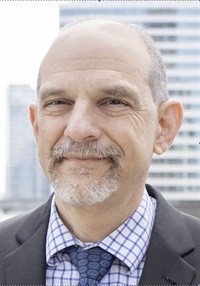Information
Death with Dignity: Oregon and Beyond
Length: 54 Minutes
This program will expire and must be completed by 07/27/26.
** Please note this program was a part of the VOC 2023. You will not want to choose this program if you completed this individual program as part of the VOC 2023. **
Learning Objectives:
• Learners will define medical aid in dying and designate criteria and patient eligibility.
• Learners will review and recognize the data and laws on medical aid in dying are different from state to state and by country.
• Learners will compare and contrast state regulations, death with dignity laws, and resources for patients in various states.
• Learners will differentiate the various roles regarding medical aid in dying, including that of the attending physician and consulting physician.
• Learners will contrast competing ethical viewpoints to assist the patient in decision-making at the end of life.
Accreditation Statement: This program is co-sponsored by the Missouri Association of Osteopathic Physicians and Surgeons (MAOPS) and the Osteopathic Physicians and Surgeons of Oregon (OPSO). Both osteopathic associations are accredited by the American Osteopathic Association to provide osteopathic continuing medical education for physicians.
The program has been designated for a maximum of one (1) AOA Category 1-A credit(s) by the co-sponsors who have authorized the Missouri Association of Osteopathic Physicians and Surgeons to report CME and specialty credits to the AOA commensurate with the extent of the physician's participation in this activity.
MAOPS is accredited by the Accreditation Council for Continuing Medical Education (ACCME) to provide continuing medical education for physicians.
MAOPS designates this conference for a maximum of one (1) AMA PRA Category 1 Credit(s)™. Physicians should claim only the credit commensurate with the extent of their participation in the activity.
Planning Disclosure: The Virtual CME Committee consisting of representatives from the Missouri Association of Osteopathic Physicians and Surgeons (MAOPS) and the Osteopathic Physicians and Surgeons of Oregon (OPSO), has no relevant financial relationships with any organization producing, marketing, reselling, distributing health care goods or services consumed by, or used on, patients relative to the content of these presentations.
Osteopathic Grievance Policy: All grievances should be in writing and should specify the nature of the grievance. Initially, all grievances should be directed to MAOPS Executive Director, who will then forward said grievance to the Virtual CME Committee. All grievances will receive an initial response in writing within 30 days of receipt. If the participant does not receive a satisfactory response, they can then submit a complaint in writing to the Council on Continuing Medical Education of the AOA at 142 East Ontario Street, Chicago, IL 60611.
Charles Blanke, MD, FACP, FASCO

Dr. Charles D. Blanke is a Professor of Medicine in the Department of Hematology & Medical Oncology at the Knight Cancer Institute at Oregon Health & Science University (OHSU) in Portland, Oregon. He also serves as chair of SWOG Cancer Research Network, an international group of nearly 6,000 physician-researchers that design and conduct cancer clinical trials. As part of the National Clinical Trials Network of the National Cancer Institute (NCI), SWOG is a worldwide leader in rigorous, large-scale cancer trials, with results leading to the approval of more than 14 FDA-approved drugs since its founding in 1956. Dr. Blanke is board certified in Internal Medicine and Oncology by the American Board of Internal Medicine.
Dr. Blanke is committed to pathway-driven, patient-centered cancer research. Since taking over as chair of SWOG in 2013, he has advanced innovation, inclusion, and integrity by launching a major lung cancer precision medicine trial, creating a leadership program for young investigators, forging partnerships with VA medical centers nationwide, and making the group more accessible and accountable by instituting term limits for committee chairs and launching The Front Line, a weekly blog available at www.swog.org.
Dr. Blanke previously had a particular interest in investigational treatments that target the genetic and molecular abnormalities that cause cancer. He was instrumental in the development and approval of imatinib mesylate (Gleevec) for use in patients with locally advanced and metastatic gastrointestinal stromal tumors (GIST). Dr. Blanke currently chairs the Gastrointestinal Stromal Tumor (GIST) Task Force for the NCI's Gastrointestinal Steering Committee. He has also significantly aided the development of chemobiotherapy use in patients with advanced colorectal cancers.
More recently, Dr. Blanke has been involved with policy and research issues related to medical-aid-in-dying (MAID), including the decision-making process, demographic descriptions of users, and drug development. He is a member of the Life's Door Hope Hub, an international collaborative group dedicated to engaging and inspiring people to live with hopefulness and meaning in the face of illness.
Before joining OHSU, Dr. Blanke was vice president of systemic therapy for the British Columbia Cancer Agency, professor and chief of medical oncology at the University of British Columbia, and head of medical oncology at Vancouver Hospital. Dr. Blanke serves on the American Society of Clinical Oncology (ASCO) Board of Directors and is a fellow of ASCO and the American College of Physicians. A SWOG member since 1999, Dr. Blanke served as subcommittee chair for colon cancer, then as chair of the group's gastrointestinal committee.
Dr. Blanke graduated first in his undergraduate class at Northwestern University in Evanston, Illinois, then earned an MD with distinction from the same institution. He completed his residency at Gundersen Medical Foundation in La Crosse, Wisconsin, where he served as chief resident. Dr. Blanke then was a hematology/medical oncology fellow at Indiana University in Indianapolis, Indiana, where he served as chief fellow. He then served as faculty at Vanderbilt University in Nashville, Tennessee, while heading its clinical trials research operation for a number of years.


